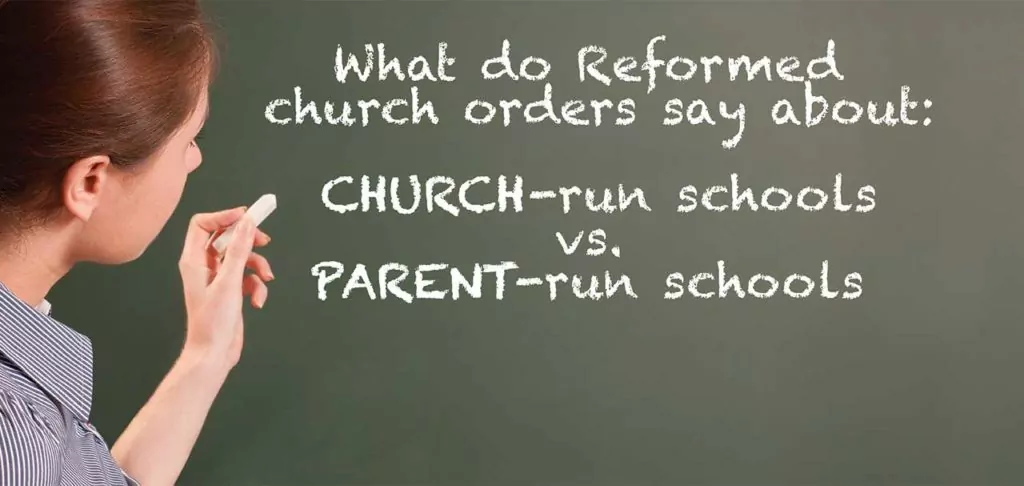
Christian education
A Christian perspective on 2+2
What does math have to do with God? Many people see no connection. Aren't logic, numbers and geometry the same for Christians and atheists? Math is thought to be the hardest subject to integrate with Christianity. Yet, there are very close links between math and God.
Mathematical realism
The key question concerns truth. Most mathematicians believe that mathematical truths such as "6+1=7" are universally and eternally true, independent of human minds. They believed that they are discovering properties of, say, numbers, rather than merely inventing them.
This view of math dates back to Pythagoras (582-507 BC) and Plato (427-347 BC). They held that mathematical concepts apply best to ideal objects. For example, geometry deals with exact circles, but no physical object is exactly circular – perfect circles don’t actually exist. Furthermore, such things as the number "7" seem to exist at all times or, even, beyond time. This led to the notion that math exists in an ideal world of eternal truth. This is called mathematical realism.
Where do such eternal mathematical truths exist? Augustine (354-430) placed the ideal world of eternal truths in the mind of God. He argued that eternal truths could not arise from material things or finite human minds. Rather, mathematical truths must depend on a universal and unchanging Mind that embraces all truth. Only God can have such a mind.
Thus math was held to be true because of its supposed divine origin. It was held, moreover, that God created the universe according to a rational plan that used math. Since man's was created in the image of God, it was thought that man should be able to discern the mathematical structure of creation. Indeed, since man was God's steward over creation, man had the duty to study nature and to apply the results towards the glory of God and the benefit of man. Such theological considerations were key factors motivating the scientific revolution. Most founders of modern science, such Kepler, Galileo and Newton, were all driven by their Biblical worldview.
Naturalist math
Ironically, the very success of mathematical science led to the demise of the Christian view. The universe seemed to be so well controlled by mathematically formulated laws that God was no longer deemed necessary. Such over-confidence in scientific laws led to a denial of biblical miracles. This undermined biblical authority. Consequently, many scientists banished God and embraced naturalism, the notion that nothing exists beyond nature.
THE LOSS OF CERTAINTY
With the rejection of a divine Mind, there was no longer any place for eternal truth. This, in turn, led to the collapse of mathematical realism. Naturalists came to consider math as just a human invention. But if math is just a human invention, why should it be true?
Mathematicians tried to prove the truth of math using the axiomatic method. Math was to be grounded on a set of undoubtedly true, self-evident principles, called axioms, from which everything else could be derived. The axiomatic method had been used with great success by the Greek mathematician Euclid (circa 300 BC). He derived all the truths about normal (or Euclidean) geometry from only 10 axioms.
This became the model for the rest of math. Towards the end of the 19th century the search was on for a set of self-evident axioms upon which all of math could be based. Any system that yields a contradiction is, of course, false. A system of axioms that will never yield a contradiction is said to be consistent. A system is said to be complete if all true theorems (and no false ones) can be derived from the axioms. The goal, then, was to find a set of axioms that could be proven to be consistent and complete for all of math.
Initially, there was some success. Simple logic and Euclidean geometry were proven to be both consistent and complete. Unfortunately, in 1931 the Austrian logician Kurt Gödel proved that the program was doomed. He proved that any large system of axioms (i.e., large enough for arithmetic with addition and multiplication) will always be incomplete. There will always be theorems that can be neither proven nor disproven by the system. Thus all of math can never be based on a finite set of axioms. Math will always be larger than our human attempts to capture it within a system of axioms.
Moreover, Gödel proved also that we can never mathematically prove the consistency of any system large enough for arithmetic. Hence we cannot be sure of the validity of arithmetic, even though we use it all the time! The soundness of math now had to be accepted largely on faith.
THE LIMITS OF INVENTION
Rejecting theism affected not only the soundness of math but also its content. Classical math was based on the concept of an all-knowing, all-powerful, and infinite Ideal Mathematician. The operations and proofs allowed in classical math were those that could in principle be done by God.
It was thought that, if math is just a human invention, its methods should be adjusted accordingly. Only those mathematical concepts and proofs were to be considered valid that could be mentally constructed in a finite number of explicit steps. The "there exists" of classical math was to be replaced by "we can construct."
This came to be known as constructive math. It entailed a new approach to both logic and proofs. Classical math is based on what is called two-valued logic. Any mathematical proposition is either true or false. Take, for example, Goldbach's Conjecture concerning primes. A prime is a number that is divisible only by itself and 1 (e.g., 2,3,5,7 & 11 are the first five primes). Goldbach's Conjecture asserts that any even number can be written as the sum of two primes (e.g., 10=3+7; 20=13+7). No one has ever found a number for which it did not hold. But no one has as yet been able to prove it. Classically, this conjecture is either true or false, even though we do not yet know which it is. Constructionists, however insist that there is a third possibility: a proposition is neither true nor false until we can construct an actual, finite proof.
The rejection of two-valued logic restricts one's ability to prove theorems. Classical math often uses an indirect method of proof called Proof by Contradiction. To proof a theorem, one first assumes the theorem to be false and shows that this leads to a contradiction; hence the initial assumption is false, which means that the theorem is true. Since such proofs rely on two-valued logic, constructionists reject them. They accept only those theorems that can be directly derived from the axioms. Unhappily, this means rejecting so many results of classical math that one lacks the sophisticated math needed in modern physics.
EVOLUTIONARY CONJECTURES
If math is just a human invention how did it ever get started? Naturalists propose that evolution has hard-wired our brains to contain small numbers (e.g., 1,2,3…) as well as a basic ability to add and subtract. They conjecture that all our mathematical thoughts come from purely physical connections between neurons.
Even if an evolutionary struggle for survival could account for an innate ability for simple arithmetic, it is hard to see where more advanced math comes from. Our ability for advanced math is well in advance of mere survival skills. The evolutionary approach fails to explain also the amazing mathematical intuition of leading mathematicians.
Further, if our mathematical ideas are just the result of the physics of neural connections, why should they be true? Such accounts of math cannot distinguish true results from false ones. Indeed, if all knowledge is based on neural connections, so is the idea that all knowledge is based on neural connections. Hence, if true, we have no basis for believing it to be true.
In spite of naturalist objections, most mathematicians remain realists. They view new theorems as discoveries rather than inventions. The excitement of exploring an objective mathematical universe is a powerful incentive for research. Realism explains why mathematicians widely separated in space, time, and culture end up with the same mathematical results. Moreover, if math is just a human invention, why is it so applicable to the physical world? Math is indispensable for science. Further, if math is a human invention, one might ask: how did math exist before Adam? Are we to believe that "2+2=4" did not hold, so that two pairs of apples did not add up to four?
Christianity and math
How does math fits within a Christian worldview? The Bible tells us that man was created in the image of God (Gen. 1:26-30). The divine image included not only righteousness but also rationality and creativity. This involves the capacity for abstract thought, as well as the ability to reason, to discern and to symbolize. Man was created with the innate potential to do math, to help fulfill his role as God's steward (Gen. 1:28). Adam could have confidence in his mental abilities because God created these to function properly. He was the result of God's purposeful plan rather than an evolutionary accident.
With Adam's fall into sin, man lost much of his original image. Yet, man's mathematical ability is still largely functional. It seems that we are born with various basic, innate mathematical abilities such as those of logic, counting and distinguishing shapes.
JUSTIFYING MATH
How can we justify human math from this basis? One could try to ground the soundness of math on the Bible. After all, the Bible frequently uses logical arguments (e.g., I Cor. 15:12-50 or Matt. 12:25-29) and arithmetic operations (e.g., Luke 12:52). Gordon Clark claimed that all the laws of logic could be deduced from the Bible. Similarly, J.C. Keister asserted that all the axioms of arithmetic are illustrated in Scripture.
Although such biblical examples may confirm our rules of arithmetic and logic, they fall short of rigorous proof. One must be careful in drawing general conclusions from a limited number of specific cases. Moreover, this method gives no basis for the vast bulk of math that extends beyond basic arithmetic and logic.
A better approach might be to ground the truth of math on the attributes of the biblical God. For example, God's character has a logical aspect. God's word is truth (John 17:17); God never lies (Titus 1:2) and is always faithful (Ps. 117:2). God means what he says, not the opposite; hence the law of non-contradiction holds. God's identity is eternally the same; hence the logical law of identity must be eternally valid. Thus the very nature of God implies the eternal and universal validity of the laws of logic. Logic is not above God, but derives from God's constant and non-contradictory nature.
God's character also has a numerical aspect: the Biblical God is tri-une, consisting of three distinct persons. Since the three persons of the Godhead – Father, Son, and Holy Spirit – are eternal, so are numbers.
Consider further God's infinite power and knowledge. God knows all things. This includes not just all facts about the physical world but also all necessary truths and even all possibilities. As such, God's knowledge surely embraces all possible mathematical truths. Thus math exists independent of human minds. God surely knows whether any proposition is true or false. Hence the usage of two-valued logic in math is justified.
God is the source of all being, upholding everything. He even establishes necessary truths and contingent possibilities. God upholds all truths, including truths about math. God surely knows whether any mathematical proposition is true or false.
God's knowledge includes that of the actual infinite. The concept of infinity is crucial to the philosophy of math. We can distinguish between potential infinity and actual infinity. Potential infinity is the notion of endlessness that arises from counting. Given any large number, we can always obtain a yet larger one by adding 1 to it. There seems to be no largest number. Potentially we could go on forever. Actual infinity, on the other hand, is the notion that the set of numbers exists as a completed set. Augustine, however, considered actual infinity to be one of the mathematical entities that existed in God's mind. He wrote, "Every number is known to him 'whose understanding cannot be numbered' (Ps. 147:5)." Since God knows all things possible, this must surely encompass also the totality of all possible numbers.
A BASIS FOR MATH
Modern math is based on set theory. A set is a collection of objects. We can consider the set of all dogs, or the set of all even numbers, and so on. We use brackets {} to denote a set. Thus, for example, the set of even numbers is written {2,4,6...}. Treating each set as an entity in its own right, we can then do various operations on these sets, such as adding sets, comparing their sizes, etc.
Remarkably, almost all advanced math can be derived from the nine axioms of modern set theory. Not all math, since Gödel proved that all of math can never be derived from a limited number of axioms. Yet, it does cover all of the math that most mathematicians ever use in practice.
So far no contradictions have been found. Can we be sure, however, that no contradictions will ever be found in this system? Gödel, you will recall, proved that it cannot be proven mathematically that the system is consistent. The best we can do is to appeal to the plausibility of the individual axioms. Everyone agrees that the axioms all seem to be self-evidently true when applied to finite sets.
Several of these axioms, however, deal with infinite sets. They postulate that certain operations on finite sets apply also to infinite sets. Infinite sets are needed to get beyond number theory (which just concerns whole numbers) to real numbers (such as √2 = 1.414213..., which requires an infinite number of decimals to write out fully). Real numbers are needed for calculus, upon which physics heavily relies.
The axioms concerning infinite sets are rejected by constructionists since infinite sets cannot be humanly constructed in a finite number of steps. However, these axioms are very plausible given an infinite, omniscient and omnipotent being. Georg Cantor (1845-1918), the founder of modern set theory, justified his belief in infinite sets by his belief in an infinite God. He thought of sets in terms of what God could do with them. Cantor believed that God's infinite knowledge implies an actual infinity of thoughts. It included, at the very least, the infinite set of natural numbers {1,2,3...}. Actual infinity could thus be considered to exist objectively as an actual, complete set in God's mind. Cantor believed that even larger infinite numbers existed in God's mind.
Even today, almost every attempt to justify the principles of set theory relies on some notion of idealized abilities of the Omnipotent Mathematician. The existence of sets depends upon a certain sort of intellectual activity - a collecting or "thinking together." According to Alvin Plantinga,
"If the collecting or thinking together had to be done by human thinkers there wouldn't be nearly enough sets - not nearly as many as we think in fact there are. From a theistic point of view, sets owe their existence to God's thinking things together."
Plantinga grounds set theory on God's infinite power and knowledge. He concludes that theists thus have a distinct advantage in justifying set theory. A detailed theistic justification of modern set theory has been developed by Christopher Menzel (2001).
Ultimately, the consistency and certainty of math can be grounded upon the multi-faceted nature of God Himself. Trust in God generates confidence in math.
Bibliography
John Byl’s The Divine Challenge: On Matter, Mind, Math & Meaning (2004)
Christopher Menzel’s "God and Mathematical Objects" in Mathematics in a Postmodern Age: A Christian Perspective (2001) edited by Russell W. Howell & W. James Bradley
Nickel, James Nickel’s Mathematics: Is God Silent? (2001)
Alvin Plantinga’s "Prologue: Advice to Christian Philosophers" in Christian Theism and the Problems of Philosophy (1990) edited by Michael D. Beaty
Vern Poythress’ "A Biblical View of Mathematics" in Foundations of Christian Scholarship (1976) edited by Gary North
This article first appeared in the February 2008 issue of Reformed Perspective under the title, "A Christian perspective on math." Dr. John Byl is the author of "God and Cosmos: A Christian View of Time, Space, and the Universe" and "The Divine Challenge: On Matter, Mind, Math & Meaning." He blogs at Bylogos.blogspot.com
Some guidelines in teaching math
The goal of Reformed education is to prepare students to serve the Lord (I Cor. 10:3). This entails teaching them to think and function within a Christian worldview. In any discipline one must teach not only the subject matter but how this coheres with other disciplines and finds meaning within the Christian worldview. God's truth functions as a comprehensive unity.
Math should thus be taught in terms of various contexts.
1. Mathematical Context
In addition to mathematical knowledge we should instill insight into why math works, an appreciation of its beauty and a love for math.
2. Theological Context
Math must be connected to the Christian worldview. We should show how Christianity explains mathematical truth, the rational structure of the universe, and our ability to do math. Studying math should be motivated by the love of God and directed to His glory. Studying math tells us something about God (e.g., His wisdom, coherence, boundlessness, consistency, dependability, righteousness).
3. Applied Context
We should illustrate how math is an important tool for other disciplines, such as science. Math helps us to fulfill the cultural mandate and to more deeply appreciate God’s wonderful world. We should stress both the strengths and limits of mathematical models: these have to be applied and interpreted in ways that are consistent with Scripture. More generally, math helps to develop logical thinking and analytical problem-solving abilities, skills that are useful in all facets of life.
4. Social context
Math teaching can be enriched by linking topics to their historical-cultural context. One could tell interesting anecdotes about pertinent mathematicians, touching also upon their religious motivation. This will bolster also the theological context since Christianity played a large role in the scientific revolution and since most leading mathematicians (e.g., Descartes, Pascal, Newton, Euler, Cantor, Gödel) were theists.














